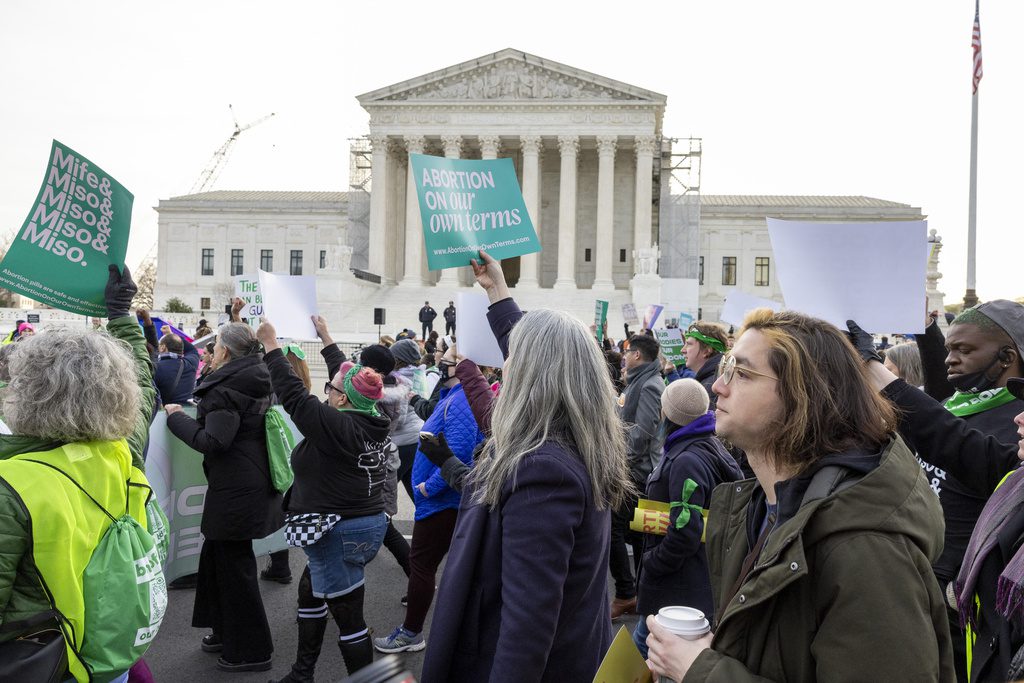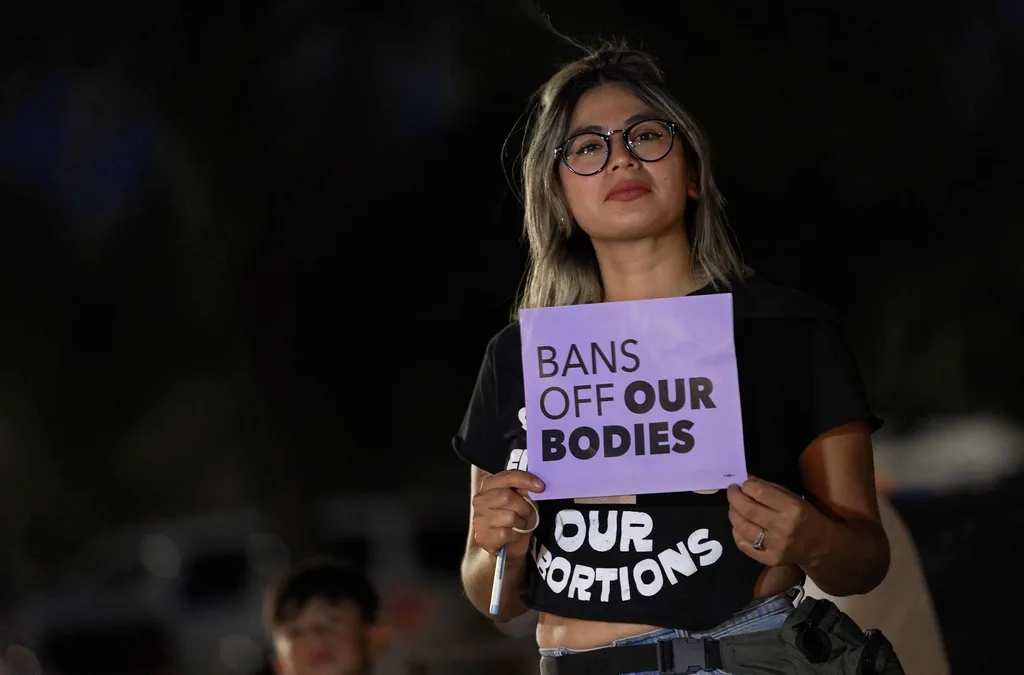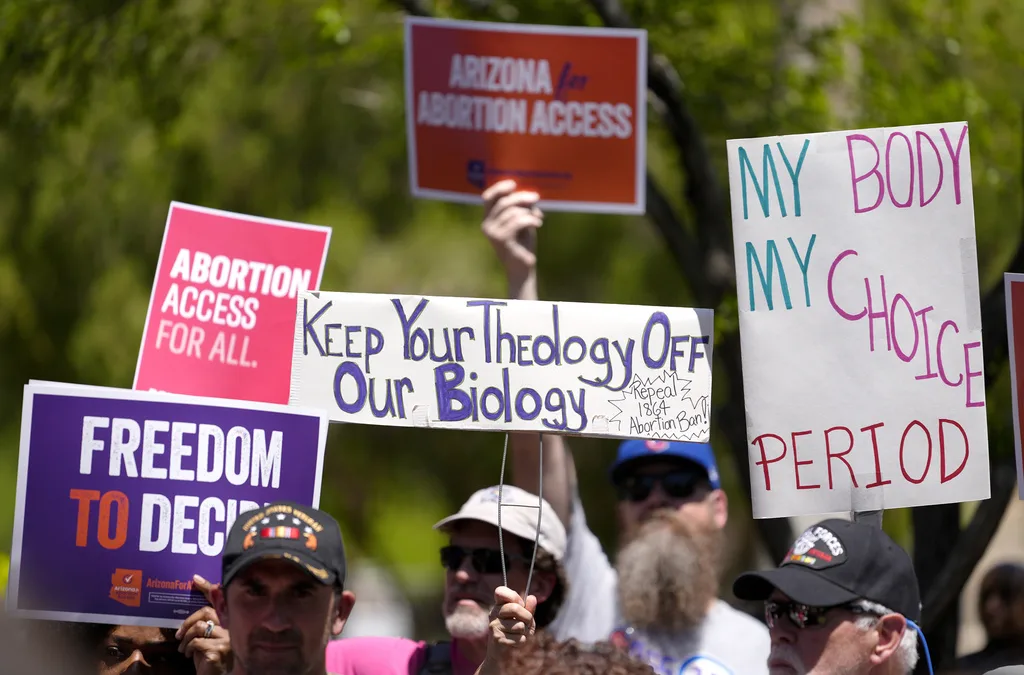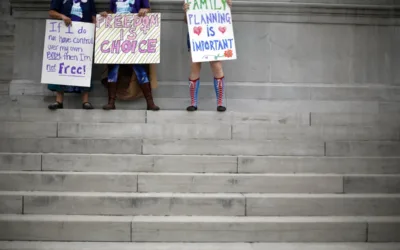
Credit: Associated Press
This is part four in a series on the increase in violence against women since the US Supreme Court overturned Roe v. Wade, and the future of abortion care and emergency medical treatment in the United States.
Read part one here.
Meanwhile, Texas Attorney General Ken Paxton took matters into his own hands in State of Texas v. Becerra. He sued the Biden administration so that a federal court would prohibit the US Department of Health and Human Services from enforcing EMTALA guidance issued directly after the Dobbs decision.
The Biden guidance concluded that: “[i]f a physician believes that a pregnant woman presenting at an emergency department is experiencing an emergency medical condition as defined by EMTALA, and that abortion is the stabilizing treatment necessary to resolve that condition, the physician must provide that treatment” (Emphasis in original).
The American Association of Pro-Life Obstetricians & Gynecologists (AAPLOG) and the Christian Medical & Dental Association (CMDA) joined as plaintiffs. Stated another way, Texas asked the court to clarify that emergency abortions are still illegal in Texas unless an exception applies under Texas law.
Stated yet another way, in Texas’s view, the federal government may not, under EMTALA, impose fines against or take away Medicare privileges from hospitals and physicians in Texas or any physicians who belong to AAPLOG or CMDA in any state. This is a much broader swath of physicians.
Texas prevailed at both the trial court and 5th Circuit appellate court before Idaho persuaded the US Supreme Court to consider this issue in US v. State of Idaho v. Moyle. Oral arguments for that case took place on April 24, 2024.
Rebecca Kendis, Staff Attorney at the Reproductive Rights Law Initiative (RRLI) at Case Western Reserve University School of Law, stated that, “while it is difficult to predict how the Supreme Court will rule on the question of preemption, the fact that the Court stayed the district court’s preliminary injunction is certainly not an encouraging sign.
Related: Democrats successfully force vote on repealing 1864 abortion ban, passes House
The Court’s decision to allow Idaho’s abortion ban to go into effect pending the outcome of the appeal does not broadcast any level of concern over the severe consequences of denying abortion care to pregnant patients facing medical emergencies. EMTALA is meant to act as a safeguard to ensure that individuals in need of emergency medical care receive timely and appropriate treatment, including emergency abortion care.
It is shocking that pregnant patients’ right to obtain critical and time-sensitive reproductive healthcare is even a question.”
Although EMTALA clearly applies to pregnant women by virtue of its plain language—and even its name—and protects all Americans in hospital emergency departments from the withholding of emergency care based on bias or prejudice, other lawsuits have attempted to protect pregnant women requiring abortion as emergency care on other legal grounds.
Sometimes, the most obvious legal strategy is defeated by a tsunami of legal reasoning. The Center for Reproductive Rights (CRR) has spearheaded the non-EMTALA lawsuits, starting with Zurawski v. State of Texas, with an ever-growing number of women plaintiffs.
Last summer, the state trial court judge ordered a temporary injunction against enforcement of the abortion ban against physicians who, using good-faith medical judgment, provided an abortion to a pregnant woman in order to “prevent or alleviate the risk of death or risk to their health (including fertility).”
Texas immediately appealed the decision to the Texas Supreme Court, automatically canceling the temporary injunction, which had also applied to fatal fetal anomalies.
CRR more recently sued two other states—in Adkins v. State of Idaho and Blackmon v. State of Tennessee—on behalf of women who had experienced medical emergencies related to pregnancy and obstetricians who argued that abortion bans prevent them from carrying out their Hippocratic Oath because they face criminal prosecution and loss of license, among other repercussions.
The goals of these CRR lawsuits in state courts are to clarify and expand the state abortion exceptions. Examples abound of pregnant women who have been directed to the precipice of death by physicians, hospital ethics committees, and hospital attorneys.
Fear is driving emergency care for pregnant women in the United States. Whether the woman is decompensating due to an emergency medical condition such as preeclampsia, is at risk of death due to carrying a fetus with a fatal anomaly, or wishes to save her own life via medical treatment, such as chemotherapy, that is incompatible with pregnancy, abortion bans cause delay and denial of lifesaving care.
Thus, the trial court judge in Zurawski determined that pregnant women in Texas “face a probable, irreparable and imminent injury.”
The EMTALA cases and the CRR cases have the same purpose—to save women—though the latter rely on state constitutional guarantees to “life, liberty, property,” “enjoying and defending life” and the like. The Idaho court recently allowed the CRR lawsuit to proceed to trial. Thus, it is conceivable that lawsuits may be the antidote to domestic terrorism perpetrated by the government.
It is no accident that plaintiffs chose Idaho and Texas in both brands of cases, given their political climate and the severity of their abortion bans.

Opinion: Don’t think Arizona abortion bans are harming women? Think again.
This is part TWO in a series on the increase in violence against women since the US Supreme Court overturned Roe v. Wade, and the future of abortion...

OPINION: Domestic Terrorism Prevents Women from Getting Lifesaving Abortions
Domestic Terrorism Prevents Women from Getting Lifesaving Abortions Twenty-five years ago, in the kitchen of his suburban Buffalo, New York, home,...

OPINION: How embracing diversity, equity, and inclusion is a business imperative
In today’s rapidly evolving global landscape, the imperative for businesses to embrace Diversity, Equity, and Inclusion (DEI) is a strategic...

Opinion: Local Democrats lead bipartisan effort to support Gila County students burdened with school lunch debt
By: Chris Senko, Chair, Gila County Democrats and Lauren Gepford, Director, Contest Every Race There is a transformative power of community action. ...






